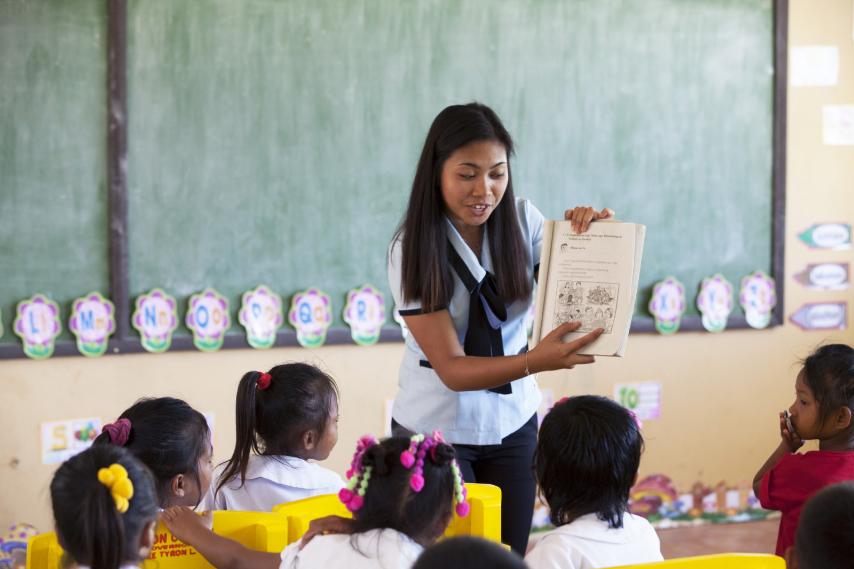Advocacy group calls for teacher licensure reforms to enhance education quality
Acknowledging the crucial role teachers play in shaping student outcomes, an advocacy group on Thursday, Oct. 17, called for reforms in teacher licensure in the country.

“Reforming the teaching licensure process is crucial in addressing the learning crisis in the Philippines,” said Philippine Business for Education (PBEd) Executive Director Justine Raagas in a statement.
“If we want our students to do better, we need better teachers with enough experience and knowledge in their subject areas,” she added.
Raagas noted that the current teacher licensure process “does not adequately reflect the diverse qualifications and experiences of educators,” thus “limiting the potential for high-quality instruction.”
Enhancing the licensure process
To enhance the licensure process for teachers, PBEd backed efforts by the Senate—particularly Senate Bill Numbers (SBN) 2840 and 2830—which aim to improve the Philippine Teachers Professionalization Act by including multiple pathways to license teachers through portfolios; Early Childhood Education as a separate exam; immediate release of exam questions with clear reporting of ratings per exam component; and refresher course requirements for failed applicants.
“These measures will create a more inclusive and effective system that recognizes diverse qualifications and practical experiences in education,” PBEd said.
PBEd pointed out that while both bills are quite similar, Senate Bill No. 2840, introduced by Senator Sherwin Gatchalian, includes a specific provision: only graduates from teacher education centers of excellence with at least an 80 percent passing rate over the last five years, as well as those with a minimum of 10 years of teaching experience, may submit a portfolio instead of taking an examination.
Meanwhile, Senate Bill No. 2830, filed by Senator Loren Legarda, allows graduates of non-education programs to select their exam specialization, regardless of their bachelor's degree, ensuring alignment with their area of expertise. These amendments acknowledge the diverse qualifications, training, and practical experiences necessary for today's classrooms.
Urgent need for reforms
PBEd noted that when the K to 12 program was introduced, the Department of Education (DepEd) called for teachers with specializations for career-specific tracks under the Senior High School (SHS) program.
“However, the licensing process did not adapt to accommodate individuals with relevant industry experience who wanted to enter the teaching workforce,” PBEd said.
Raagas noted that the “failure to update the licensure exams and requirements may have contributed to a gap in the quality and relevance of education offered in these specialized tracks, which could explain the skills mismatch observed among our graduates in the job market.”
Addressing concerns
PBEd stressed that these proposed pieces of legislation will address teacher shortages and the lack of specialized teachers.
The amendments, PBEd emphasized, also focus on improving the Board Licensure Examination for Teachers (BLEPT) by ensuring that exam questions are created collaboratively with educational institutions and are validated to enhance the quality and relevance of the tests for future teachers.
“The dismal performance in BLEPT exams and international assessments tells us that there is much work to be done to improve the quality of teaching and education in our country,” Raagas said.
“Given the evolving needs of our teachers and students, we require these reforms to ensure that our education system is responsive, effective, and capable of preparing both educators and learners for the challenges of the future,” she added.